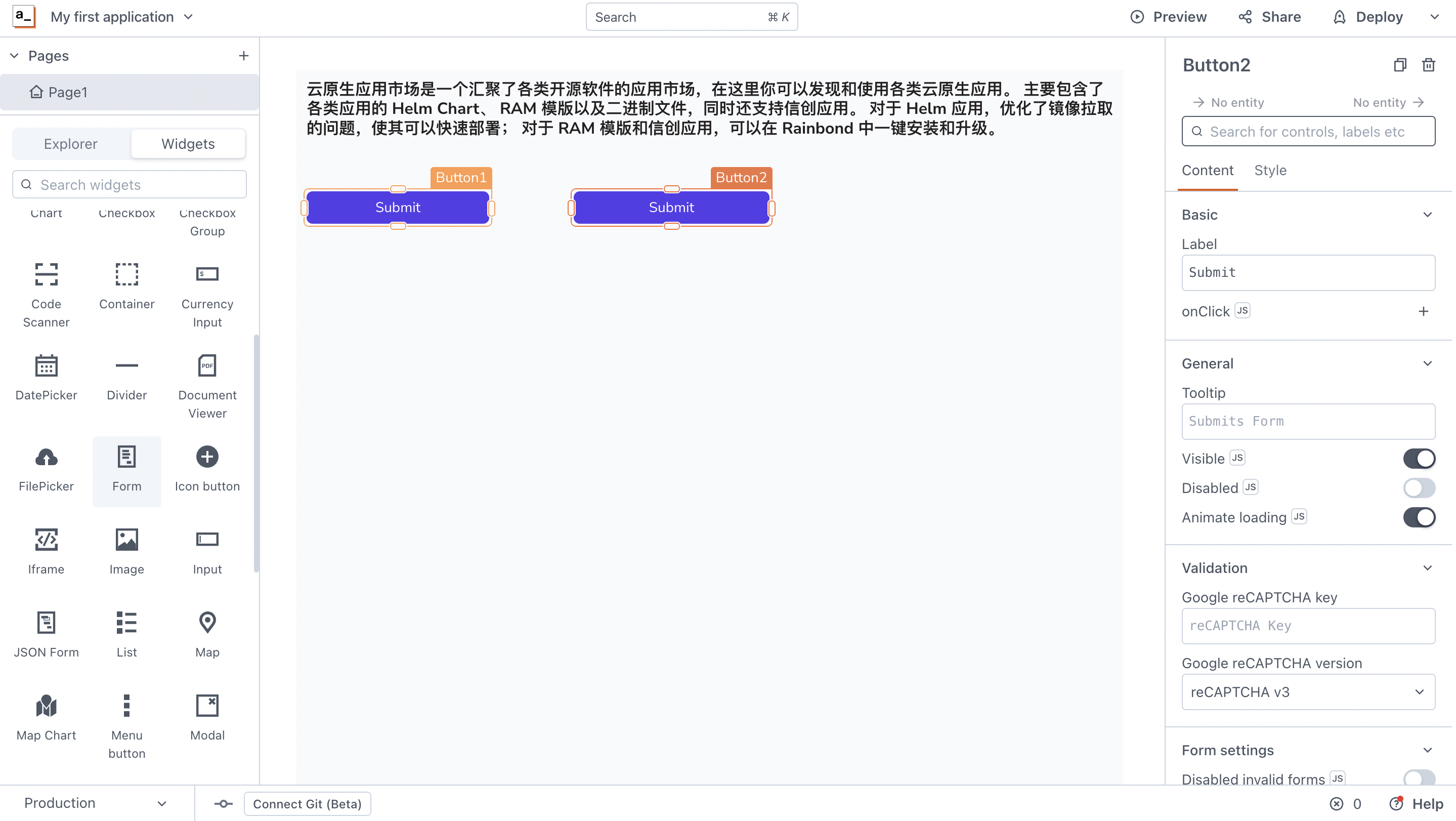Low-code development is a visual approach to app development. Low-code development enables developers of all experience levels to create web and mobile applications through a graphical user interface, using drag-and-drop components and model-driven logic.
Application overview
Founded in 2019, Appsmith is a compelling open source low-code framework. Its main application areas cover admin panels, internal tools, and dashboards, etc. By simplifying the process, it allows users to easily drag and drop UI components to build pages. With connections to various APIs, databases or GraphQL sources, combined with JavaScript programming, users can write logic in an efficient manner, thereby completing the development of internal applications in a short period of time. In recent years, Appsmith has attracted wide attention due to its rapid development momentum. It stood out on GitHub and won 28.7kStars, becoming one of the most popular low-code development platforms.
Of course, in addition to its impressive trajectory, Appsmith is also admired for a series of fascinating characteristics. Let’s dive into these characteristics and highlight their unique value in the world of low-code development.
Outstanding features
1. Multi-database connection and convenient data operation: Appsmith's seamless data integration solution
Appsmith supports a wide range of database types, including SQL, NoSQL, OLTP, and also provides comprehensive support for REST API and GraphQL. Regardless of the system in which the data is stored, Appsmith provides templated and convenient commands that allow users to easily access these data sources. This native operation of databases and APIs helps authenticate connections on the fly and prepare data ahead of time for development. Users only need to establish a connection to the data source once, and then use the connection repeatedly in all applications in the workspace.

2. Seamless construction: drag-and-drop UI customization and function integration in Appsmith
Within Appsmith, users can easily build the user interface of the application with the help of more than 45 ready-made widgets through simple drag-and-drop and click operations. With just one click, you can quickly view a functional UI design, or blend your own with the provided pre-made building blocks. You can also add extra features for features like document viewing, media presentation, code scanning, and even custom diagrams. With themes and custom branding, you can run your entire application without involving cumbersome custom code.

3. Enhancements: JavaScript customization and code reuse in Appsmith
Within Appsmith, you can write inline JavaScript code or reusable code blocks to further extend your app's functionality. For example, you can implement dynamic data binding using JavaScript, or add logic in widget properties. With an IDE-like editor that has built-in features like auto-completion, multi-line editing, debugging, and code review, you can easily write reusable blocks of code. In addition, you can use the built-in JavaScript library for data manipulation and transformation.

installation guide
- Enter the cloud-native application market
- Search AppAppsmith
- Click the details to select the package type. This application supports three different installation methods: Docker, Helm, and RAM.
- Click Install and execute the corresponding command. If you have any questions, please refer to the documentation or join the community